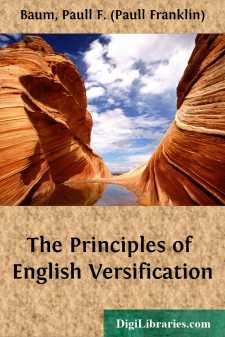Categories
- Antiques & Collectibles 13
- Architecture 36
- Art 48
- Bibles 22
- Biography & Autobiography 816
- Body, Mind & Spirit 145
- Business & Economics 28
- Children's Books 17
- Children's Fiction 14
- Computers 4
- Cooking 94
- Crafts & Hobbies 4
- Drama 346
- Education 58
- Family & Relationships 59
- Fiction 11834
- Foreign Language Study 3
- Games 19
- Gardening 17
- Health & Fitness 34
- History 1378
- House & Home 1
- Humor 147
- Juvenile Fiction 1873
- Juvenile Nonfiction 202
- Language Arts & Disciplines 89
- Law 16
- Literary Collections 686
- Literary Criticism 179
- Mathematics 13
- Medical 41
- Music 40
- Nature 179
- Non-Classifiable 1768
- Performing Arts 7
- Periodicals 1453
- Philosophy 66
- Photography 2
- Poetry 897
- Political Science 203
- Psychology 45
- Reference 154
- Religion 516
- Science 126
- Self-Help 85
- Social Science 82
- Sports & Recreation 34
- Study Aids 3
- Technology & Engineering 59
- Transportation 23
- Travel 463
- True Crime 29
Our website is made possible by displaying online advertisements to our visitors.
Please consider supporting us by disabling your ad blocker.
The Principles of English Versification
Categories:
Description:
Excerpt
PREFACE
Most of the older discussions of English versification labored under two difficulties: an undue adherence to the traditions of Greek and Latin prosody more or less perfectly understood, and an exaggerated formalism. But recently the interest and excitement (now happily abated) over free-verse have reopened the old questions and let in upon them not a little light. Even today, however, a great deal of metrical analysis has wrecked itself on the visible rocks of a false accuracy, and it is therefore not only out of caution but also out of mere common sense that we should eschew the arbitrary, even at the risk of vagueness and an 'unscientific' admission of uncertainty. For the only great and annihilating danger of writing on versification is dogmatism. Our theorists, both old and new, are first tempted and then possessed with their theories—all else becoming wrong and intolerable. In the following pages I have perhaps erred in a too frequent insistence on doubts and perplexities; perhaps also, on occasion, in a too plain statement of opinion where judgments are bound to differ—sic se res habent.
Now it is plain that rhythm is one of the ultimate facts of nature and one of the universal principles of art; and thus versification, which is the study of the rhythms of verse, is both a science and an art. But it differs from the other sciences in that its phenomena are not 'regular' and reducible to law, but varying and subject to the dictates, even the whims, of genius; inasmuch as every poem involves a fresh fiat of creation. Of course, no poet when he is composing, either in the traditional "fine frenzy" or in the more sober process of revision, thinks of prosody as a science, or perhaps thinks of it at all. If he did he would go mad, and produce nothing. But the phenomena remain, nevertheless, and the analysis of them becomes for us a science.
This analysis has what Bacon would call two inconveniences. The first is complexity. The various ways in which the formal rhythms of verse combine with the infinitely modulated rhythms of natural prose produce a resultant which is complicated to the last degree and which almost precludes orderly exposition. No system has been devised to express it. The simpler ones fail through omission of important difficulties, the more elaborate totter under their own weight. And thus the Gentle Reader is either beguiled by false prophets—looks up and is not fed—or loses heart and saves himself by flight. There is, to be sure, an arcanum of prosodic theory which is the province of specialists. It has its place in the scheme of things; but it is no more necessary for the genuine enjoyment of Milton (or the 'moderns') than a knowledge of the formulae for calculating the parallax of Alpha Leonis is necessary for enjoying the pillared firmament. We must then compromise with a system which reveals the existence of all the phenomena and tries to suggest their interrelated workings.
The other inconvenience is that of seeming to deny the real poetry by our preoccupation with its metrical expression....


